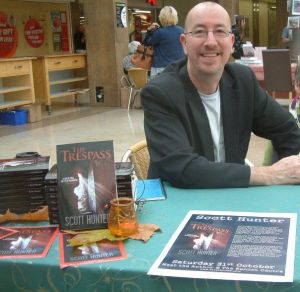‘I’m slipping into grey.
And I was (in my way) good to you.
And you were good for me.
Bye Bye my love.
Going to play the End Game…’
Ian Anderson – End Game
The relationship between author and reader is a close one – or should be. You have created a world in which the reader has lived, laughed, cried, been scared (maybe) – in short, has experienced every emotion going.
So how are your characters going to sign off? How are you going to end it? There are quite a few choices:
- Suddenly (an unexpected disaster?)
- Violently (a sub category of the above)
- Reflectively
- Sadly
- Stoically
- Philosophically
- Happily
- Esoterically (ie you haven’t a clue what’s just happened)
- Unexpectedly
- Uncertainly
- Poetically
You can probably add a lot more to this list!
But returning to my trusty Shakespeare illustrations, old Will was really good at the end game stuff. Often he’d have someone wander on and sum up the play in a few verses, maybe evoking some of the above options, or maybe giving his/her take on the events which have just drawn to a (usually tragic) conclusion.
This can also work well in a modern context, where a revealing closing conversation between two leading characters ties things up nicely and leaves you in a satisfied, pondering sort of frame of mind.
As I write Crime novels and thrillers I like to end with the unexpected, or rather ‘the hinted at’, where something the reader has predicted might happen actually does happen, but not necessarily in the way they anticipated.
This works well because it ‘wrong foots’ the reader, and (if a big enough event) may either reinforce or even overturn their understanding of the novel’s theme.
Think of your favourite novel. How did it end? What did you like about the way the author brought the curtain down?
Sebastian Faulks’ powerful novel, ‘The girl at the Lion D’or’ concludes on a note of hope. But boy, do the final few pages make you sweat! I held my breath as the heroine was plunged into the worst despair ever before she finally won through and showed her incredible strength of character; thus was a tragedy averted by sheer will power and determination. And let me tell you it was SO gripping!
Another of my favourite novelists, Rohinton Mistry, is a master at leading you to the inevitable without you realising it until it actually happens. Read ‘A Fine Balance’ or ‘Family Matters’ (btw, his characterisation is wonderful and very often it’s the characters themselves who dictate their eventual fate).
How about an epilogue? Well, I’ve seen the good, the bad and the pointless. A good epilogue is akin to providing the reader with a kind of literary airlock which prepares them for (and eases their return to) the real world. It can be written in a different style, a different tense. If one doesn’t occur to you naturally, don’t force it! Better no epilogue than an indifferent one.
If I don’t end with the unexpected, I must confess that I tend to the poetic (Will’s influence again!). But only after I have resolved all conflict and tied up loose ends! This is the camera shot that pans back and back and back and allows the reader to catch their breath, relax and enjoy the moment.
Here’s the closer from ‘The Trespass’:-
Towards the east a congregation of clouds was
gathering. Dracup watched the formation coalesce as
a zigzag of white lightning cut the horizon in two. He
rested his head against the padded seat and closed his
eyes. The Chinook flew on, into the eye of the
coming storm.
Over to you! Going to play the End Game…?



